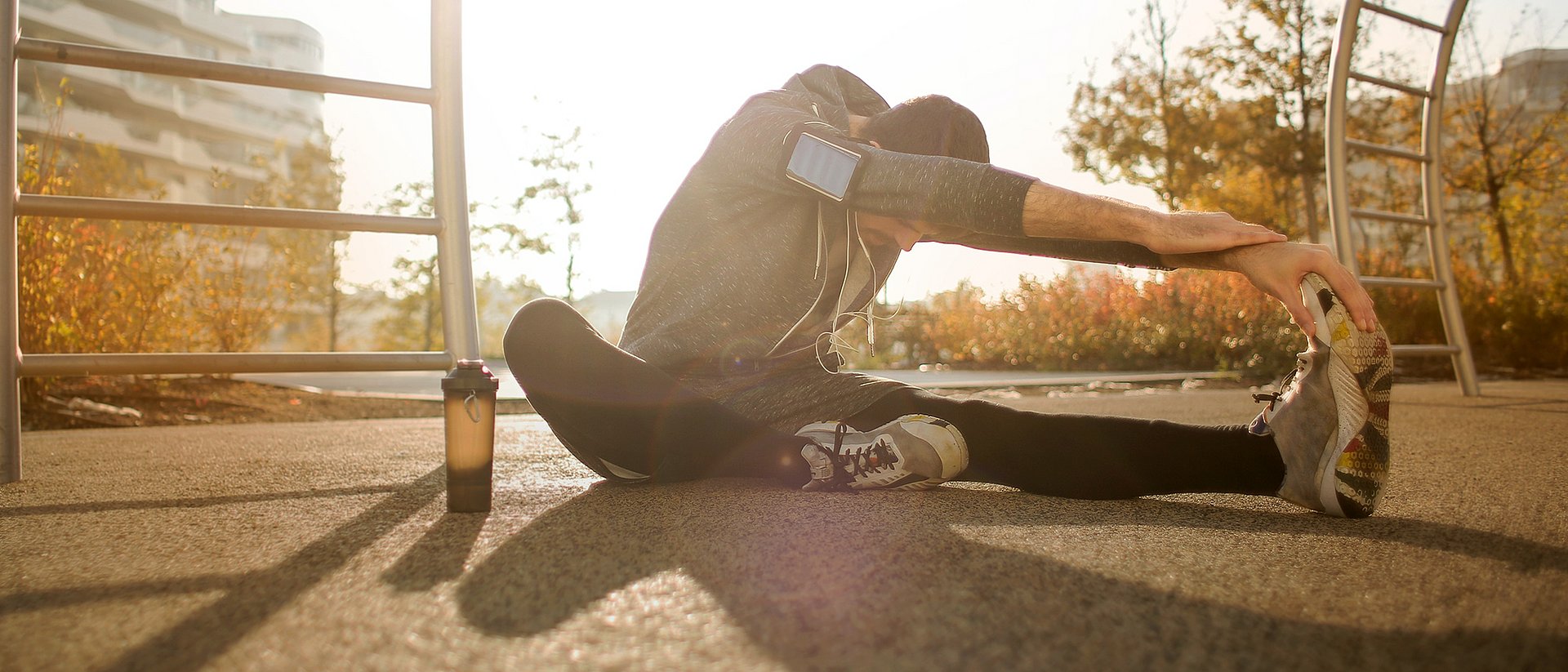Why physical activity entices you to eat more – and how to fight it
Losing weight through exercise

According to statistics from the German Obesity Society*, around two thirds (67 percent) of men and half (53 percent) of women in Germany are overweight. Accordingly, they have a body mass index (BMI) of over 25 (* international data are given in the section “More information” below).
In addition, according to the Consumption and Media Analysis 2020, around 7.17 million people in Germany want to lose weight. Physical exercise is an important option to achieve this. After all, more calories are consumed through sport than when sitting, standing or lying down.
But what influence does sport have on (in)direct nutritional behavior? This question has now been investigated for the first time by scientists from the Technical University of Munich and the University of Nebraska (Lincoln, USA). Their results were now published in the journal “Nutrients”.
Randomized study
“In the sports context, we have the phenomenon of people overeating after physical activity,” said Karsten Köhler, Professor of Exercise, Nutrition and Health at the Technical University of Munich. “People want to reward themselves and their bodies for being active. So we use a hypothetical experiment to find out why people eat more after exercise compared to when they don't exercise.”
The aim of a randomized crossover study was to investigate the influence of exercise on hypothetical decisions regarding the amount and timing of food intake. For this purpose, 41 healthy participants (23 women, 18 men) aged between 19 and 29 years with an average BMI of 23.7 were randomly assigned to either a 45-minute exercise session or a rest period of equal duration at the first visit and completed the other study condition at the second visit.
Subjective assessment of hunger and satiety
In each case, the training group answered an electronic questionnaire before the physical activity about their subjective assessment of hunger and satiety, preferred amount of food to eat, and choice between foods that differed in timing of consumption. Subjects indicated their food quantity preferences by listing their desired portion size of each food. Preferences were obtained for both immediate and later consumption of the food after four hours.
After answering the first questionnaire, participants performed 45 minutes of aerobic exercise on a bicycle ergometer. Immediately afterwards, they completed the electronic questionnaire a second time and then a third time after a 30-minute break. The procedure for the group without training was identical; instead of 45 minutes of physical activity, these participants had a rest break.
Compared to the rest break, exercise provided a greater increase in the amount of food chosen, both immediately after exercise and 30 minutes afterwards. Physical activity also resulted in a greater increase in preference for immediate food consumption both immediately after exercise and 30 minutes afterwards.
Weight loss through exercise
“Based on this study, we were able to show for the first time that certain characteristics, such as the amount and ‘urgency’ with which a person wants to eat, change over the course of physical exertion,” said Prof. Köhler, classifying the results. “These findings help us develop new interventions to optimize weight loss through exercise.”
“The actual results suggest that physical exertion can entice those who do sport to eat larger amounts of food more quickly after the training session,” says Prof. Köhler. “Since weight loss is a main motivation for exercising for many, and failure to achieve the desired weight loss makes it likely to quit exercising, it could be a good strategy to think about what you want to eat afterwards before you start to exercise.”
How effective these and other possible strategies work, how they can improve long-term compliance with training programs and contribute to favorable health results through weight loss and whether the effect may eventually wear off, is the subject of the current research of the scientists.
Karsten Koehler, Safiya E. Beckford, Elise Thayer, Alexandra R. Martin, Julie B. Boron, and Jeffrey R. Stevens
Exercise Shifts Hypothetical Food Choices toward Greater Amounts and More Immediate Consumption
Nutrients 2021, 13(2), 347 – DOI: 10.3390/nu13020347
Collection of obesity facts by the WHO
Obesity facts by the US Centers for Disease Control and Prevention
The BMI is the most common formula for calculating weight. It is calculated by squaring the ratio of body weight in kilograms and height in meters. Values between 18.5 and 24.9 are considered normal weight.
This research was funded by the University of Nebraska Food for Health Collaboration Initiative.
Technical University of Munich
Corporate Communications Center
- R. Schwaiger / A. Battenberg
- battenberg@zv.tum.de
- presse@tum.de
- Teamwebsite
Contacts to this article:
Prof. Dr. Karsten Köhler
Professorship of Exercise, Nutrition and Health
Georg-Brauchle-Ring 60/62, 80992 Munich
Tel.: +49 89 289 24488 – E-Mail: karsten.koehler@tum.de